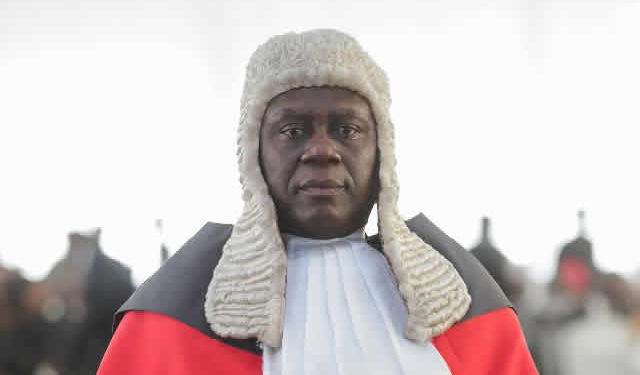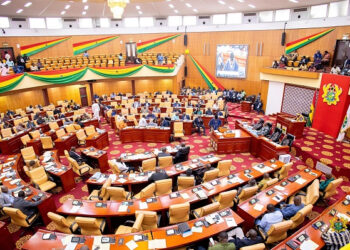Kwasi Anin-Yeboah, the lawyer at the center of the alleged $5 million bribery involving the Chief Justice, will appear before the General Legal Council‘s (GLC) Disciplinary Committee on February 16.
This follows a Supreme Court judgment that denied Kwasi Afrifa’s bid to have the ongoing disciplinary proceedings put on hold.
In August 2021, Mr. Afrifa took the General Legal Council to the High Court, requesting that the GLC dismiss nine allegations brought against him by the GLC.
Following its first hearings, the Council decided that Mr Afrifa has been charged with misconduct in the first instance.
The private legal practitioner had expressed concerns about two GLC meetings that resulted in the allegations leveled against him.
Regarding the first meeting, which took place on July 15, 2021, Mr. Afrifa said that upon his arrival, he was notified that the complainant had filed another action against him.
He requested the Council to postpone the hearing since he had not been served.
This request, he claims, was disregarded when he was given the 8-page procedure, and the hearing began soon thereafter.
He went on to say that after this hearing, he was notified that a prima facie case had been established and was summoned to appear in court on July 29.
The lawyer claims that this is in violation of the due process requirements outlined in several Supreme Court rulings about the need for a fair hearing.
He insists he did not get a fair hearing since he was not aware of the entirety of the case against him hence his inability to respond to it adequately.
He also says that the GLC did not follow its own guidelines. These claimed violations, he thought, provided a sound foundation for the High Court to utilize its jurisdiction to stay the Council’s proceedings.
Concerning the claims leveled against the Chief Justice, the lawyer replied that he just repeated what his client had said.
This, he maintained, is not irresponsible or affirmation of the charges’ validity or falsity.
He went on to say that he couldn’t judge the veracity of what he was told since he wasn’t there at the sessions.
Mr Afrifa defended his revelation of this charge by claiming that it was required for him to present his defense to the General Legal Council.
He closed by stating that five of the allegations leveled against him are based on Legislative Instrument 613, which he claims has been abolished by Rule 103 of L.I. 2423.
He maintains that the remaining allegations are either redundant, imprecise, unknown, or fundamentally wrong.
However, the High Court decided in favor of the GLC, dismissing the lawyer’s lawsuit. As a result, he requested the Supreme Court’s intervention.
He contended that the High Court ruling should not be upheld since it amounted to an error that needed to be addressed. The Supreme Court, on the other hand, was not persuaded.
It found that Mr Afrifa had failed to establish his case. It also ruled that it could not prevent the GLC’s committee from carrying out its mission and that such an application should be filed in the High Court.
Read Also: Road contractors to be paid outstanding debts if E-levy is passed – Roads Minister
SOURCE: myjoyonline


























